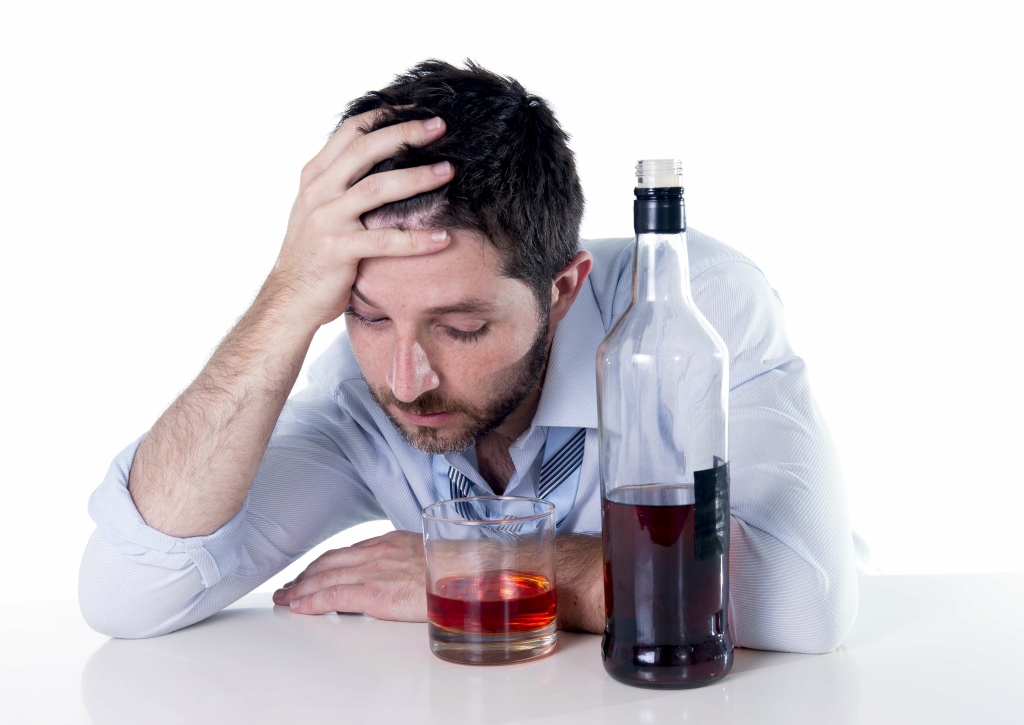Sleep and circadian rhythm disruption from alcohol also contribute to next-day tiredness, fatigue, irritability, and difficulty concentrating. Even if it doesn’t present as a full-fledged hangover, alcohol-related sleep loss negatively affects mood and performance. The most effective time of day for the body to metabolize alcohol, according to research? That’s right, the traditional “happy hour” time is actually when the body is most prepared to process that cocktail. If that mimosa with brunch hits you particularly hard, it may be the result of circadian timing.


The sleep EEG effects in those with long-term alcohol dependence are the
opposite to those following acute alcohol administration. One possible mechanism is
long-term alteration in responsiveness of GABA mechanisms. There is evidence of allosteric
modification of GABA receptors (Kang, Spigelman, and Olsen
1998; Follesa et al. 2006) and reduced
GABAA receptor function (Valenzuela and
Harris 1997; Mihic and Harris 1995) in
rodent models of alcohol dependence. Thus down regulation of brainstem GABAergic systems
following development of alcohol dependence would lead to diminished activity in REM-off
systems (see Figure 6) leading to an increased
propensity for REM.
Gender and Alcohol
Sleep occurs over a sustained period, typically lasting approximately 8 hours in
humans. In the absence of continued dosing, alcohol consumed prior to the onset of sleep,
therefore, will not be at a constant level throughout the sleep period. Sleep, therefore, could be expected to be affected
differently during the initial period of high alcohol levels from the subsequent elimination
phase. The presence of alcohol metabolites such as aldehyde need to be considered in terms
of their own possible influence on sleep mechanisms as do secondary effects of alcohol, such
as diuresis.
Another possibility is that alcohol abuse leads to long-lasting
neurochemical changes in the brain stem. Figure 2 (adapted from (Colrain, Turlington, and Baker 2009b) gives an example of the
proportions of wakefulness (pre-sleep and throughout the night), and different sleep stages
in alcoholic and control men and women. Some studies suggest that alcohol can help extend your sleep if these sedative effects are timed with the early phases of sleep, since you’re more likely to fall and stay asleep sooner. But while this may be the case with lower doses of alcohol (lower than a standard drink), there’s evidence that your sleep quality may diminish over the course of the night—especially if you’ve had more than a low dose. You can manage the negative effects of alcohol on sleep by giving your body ample time to metabolize alcohol before falling asleep.
Ian M. Colrain
For younger individuals, lifestyle changes and regular screening should be at the top of their prevention checklist. If you have AFib, depending on your lifestyle and risk factors, different treatment options are available including antiarrhythmic drugs and catheter ablation. Plus, pay attention to your Nightly Recharge™ and how you feel during and after your sleep to understand what works for you. It’s also important to drink plenty of water after drinking alcohol because of the additional fluids you will have lost because it is a diuretic. Alcohol makes us sleepy by increasing the levels of adenosine in the brain. This chemical is what caffeine blocks to make you feel more alert, and, in turn, alcohol enhances to make you feel drowsier.
- By Buddy T
Buddy T is a writer and founding member of the Online Al-Anon Outreach Committee with decades of experience writing about alcoholism.
- P2 amplitude was,
however, smaller in alcoholics than controls with the difference being largest at Cz,
where the component was maximal, but smaller at other sites (see Figure 5). - Remember that only a healthcare professional or sleep specialist can diagnose a sleep condition.
- In general, try to avoid drinking alcohol four hours before you plan on going to sleep.
It’s true, sleep may happen more quickly after consuming a drink or two. Alcohol often does reduce sleep onset latency—the time it takes to https://ecosoberhouse.com/ fall asleep. Depending on how much alcohol is consumed, however, what seems like falling asleep may be something closer to passing out.
Does alcohol cause insomnia or poor sleep?
“The data’s very clear that ablation is superior to any anti-arrhythmic drug that we have. It’s evolved over time that ablation is now considered a reasonable first-line treatment for rhythm control and atrial fibrillation,” said Passman. Other symptoms include lightheadedness, fatigue, chest pain (angina), and shortness of breath. AFib is caused when the heart’s upper chambers (atria) beat irregularly, which can disrupt blood flow to the lower chambers of the heart. Individuals with AFib are at higher risk of stroke, heart attack, and heart failure.
When you have a sober night of sleep, your PSNS becomes activated, which helps to relax your muscles, lower your heart rate and ensure you have a good night of rest. However, when you drink alcohol, your SNS remains active and doesn’t does alcohol help you sleep cede control to your PSNS, which interferes with the restorative functions of sleep. People in alcohol recovery take a long time to fall asleep, have problems sleeping through the night, and feel that their sleep is not restorative.
